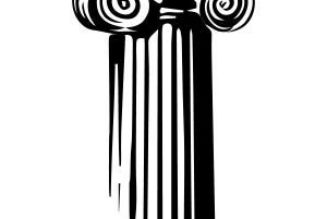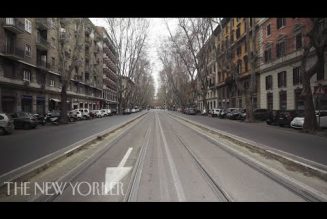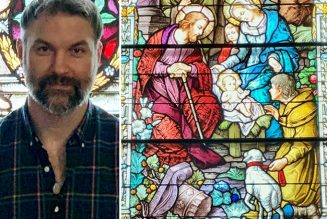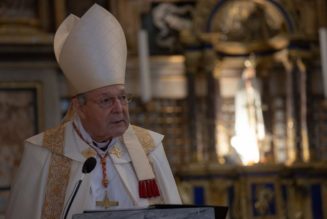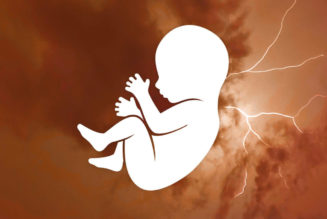
“He must increase; I must decrease.” That’s what John the Baptist had prayed, right before he was arrested. God grants his prayer on the Third Sunday of Ordinary Time Year B.
After John was arrested, he decreased, fast — even being decapitated. And Jesus’s mission escalated quickly. This same dynamic has to be true in each of our lives — and in more ways than one.
In the Gospel, we hear a story that is different from last week’s about the call of Simon, Andrew, James and John.
Last week, we saw John point to “The Lamb of God” and watched the apostles approach and speak to him; they were so struck by the meeting that John remembered the exact time, 4 o’clock. This week, Jesus passes by them in their boats and calls them, and they abandon their nets and follow.
When I cover this in The Extraordinary Story podcast episode “Jesus Gathers His Band of Brothers” I speak about how this actually makes sense: We all tell our story in many ways, whether it be the story of our marriage — first meeting, first date, first kiss, etc. — or how we met Jesus.
There is clearly a break here, though, between the time of John the Baptist, when he introduces them to Jesus, and the time of Jesus, when John is utterly superseded. John had come to the Jordan River saying to prepare a royal way for a king; now Jesus is at the Sea of Galilee announcing that the royal visitor has arrived. John had said, “One mightier than I is coming;” now Jesus says “This is the time of fulfillment.” The voice of God had said “You are my beloved Son; with you I am well pleased;” now Jesus says “The kingdom of heaven is at hand.”
Something momentous is clearly happening. Something history-altering.
This is the amazing moment when the kingdom of God breaks into time. Before he empowers his band of brothers to accomplish it, Jesus articulates what is happening. It’s important to understand every word of what he says.
First, he says: “This is the time of fulfillment,” and he means: God gave you his Law, his Prophets and his Temple, to prepare you. But you don’t need those anymore.
- The Law is fulfilled: Adam and Eve walked with God in the garden, until their sin spoiled it. The Law prepared their children to return — and now God has come to walk with us again.
- Prophecy is fulfilled: Our first parents spoke with God face to face, but sin shut their ears to his voice. So he sent prophets instead. Now, the one who the prophets where pointing to is here.
- The Temple is fulfilled: The Temple was a graced place where heaven and earth met and mingled. Now, we won’t have to worship God in one place only; we will have access to him everywhere.
Next, Jesus says, “Repent, and believe in the Gospel,” and he means: Turn back to God and accept his offer.
- Repent … Regret your past — not in unhealthy self-hatred, but in healthy self-love; not feeling sorry for who you are, but feeling sorry for squandering your opportunities to “become who you are,” as St. John Paul II put it.
- … and believe … Admit what you have always known — there is more, far more than what we see, hear and feel in the material world.
- … in the Gospel: Accept the evangelion, the news that God has won and Jesus is the Way, the Truth and the Life we must now live.
Jesus makes his invitation, and we get examples of exactly what it looks like to take his invitation seriously. Simon and Andrew, “abandoned their nets and followed him;” James and John “left their father Zebedee in the boat along with the hired men and followed him.”
It is like they left this world behind for another world. Because they did.
St. Paul in the Second Reading gives the same message as the Gospel, with the same urgency, saying, “the time is running out. From now on, let those having wives act as not having them, those weeping as not weeping, those rejoicing as not rejoicing, those buying as not owning, those using the world as not using it fully.”
In one sense, that sounds like an expectation that Jesus would come again, quick. But 2,000 years later, we can see another, more fundamental, meaning. The reading itself sums it up best: “The world in its present form is passing away.”
That beloved relative you cared for is now often forgotten; that best friend you had 10 or 20 years ago hasn’t crossed your mind for months; that place where you built beautiful memories is gone without a trace. The people we know now will move on; the places we see now will shuffle locations or fold; the social order that dominates our lives will go through upheaval and explode — or simply fade away and die.
This is exactly the message the Lord gave Jonah to deliver: “Forty days more and Ninevah shall be destroyed.” It was enough to awaken a whole city’s repentance and conversion.
It should do the same for us. Jesus wants us to look at the world that so often fails and disappointments us and live in his world, instead.
The problem is, we often prefer the passing world to the one that lasts forever. Again and again, we look at the world and serve our concupiscence — our desire for money, pleasure and comfort — before we serve God. Listen to the advice of old people and they often see what younger people don’t: Time spent gathering things is wasted; your life on earth has an expiration date; be humble with your spouse and children, because you will eventually learn that love is what your life was for.
After Sunday’s readings we can add some crucial advice to that: You must decrease and Jesus must increase.
St. Paul was trying to teach the Corinthians that the things they were focused on needed to fade into the background, and God needed to take the foreground. Jonah had to get over his attachment to his own self-conception. The last thing he wanted to do was preach God’s will to sinners, and he threw his own life away fleeing from it. When he increased, God’s plan decreased; when he gave in, God made huge gains.
Or think of it from the point of view of Sunday’s Gospel. Simon and Andrew were casting their nets into the sea, doing what they do and being who they are; they were fisherman. When Jesus called them, they could easily have argued that, No, they had to focus on their own way of life, on the responsibilities right in front of them. And we never would have heard of them and the history of the world would be different.
Or think of James and John, who left their Father behind. That must have been gut-wrenching. But St. Jerome points out how they left the inferior reality they could see for a greater reality they couldn’t see: “They left their father of the flesh to follow the Father of the spirit. They did not leave a father; they found a Father.”
St. Augustine says we can all do that in our present circumstances: We can all separate from the household we see and “build a house in our heart and make a place where he may come and teach us.”
And just as James, John, Simon, and Andrew discovered there was more to them than tending nets, we will find there are untold depths to each of us.
After all, what is true for John is true for us: We must decrease. Jesus must increase.
The Law, the Prophets and the Temple are gone; instead at each Mass we receive Jesus Christ himself, and live his life in the world. We say the Our Father shortly before receiving communion because it’s meant to remind us that we have to separate from our earthly life and attach ourselves to the life of Our Father who art in heaven by way of Jesus Christ, truly present in the sacrament.
We are meant to think: “What I do now, I do in eternity, for I am here and also there, in the Lord.”
After communion, pray:
“Lord God, you made me in eternity and placed me in time. Then you sought me in time to bring me to eternity. Help me live each moment with you. I pray for your kingdom to come and your will to be done — but I can make that prayer happen. Living in you brings your will to my life and your kingdom to earth. By the grace of this communion, help me live in your eternity by living in your Son. Let me decrease and he increase.”
Amen.
By decreasing, we will increase to the size of the infinite God.
Image: pxhere

